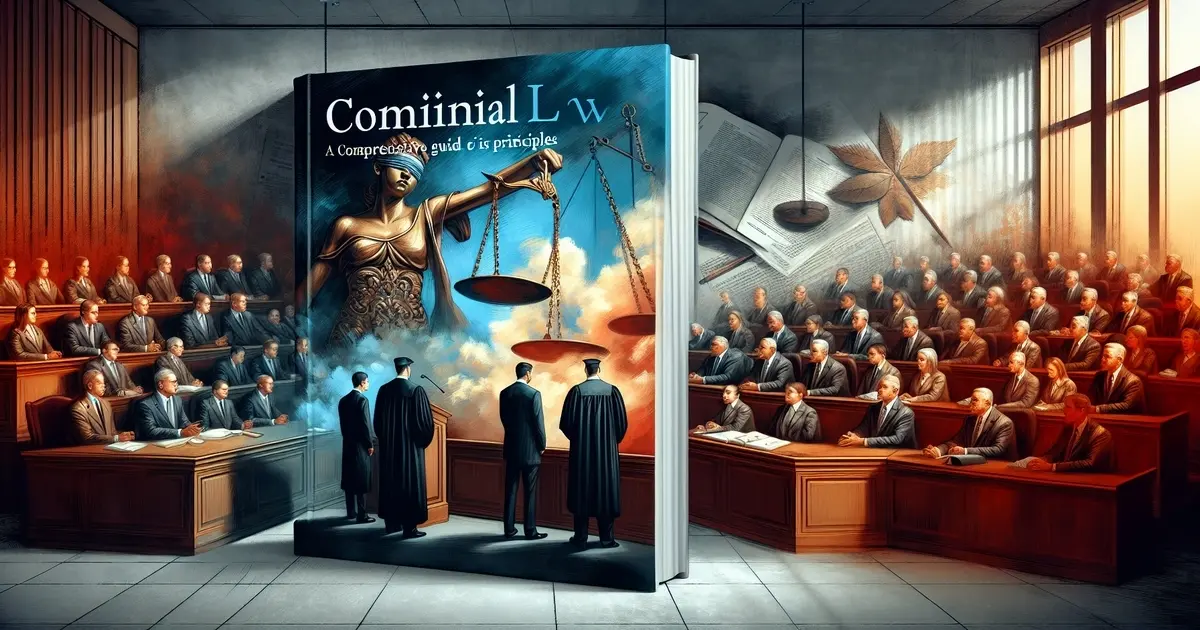Law Practice Areas: A Comprehensive Guide to Choosing Yours
Navigating the wide variety of legal aspects in the vast world of law practice areas, including sports lawyers, can feel like wandering through a labyrinth for the uninitiated. Yet, it's an exhilarating adventure for those with knowledge and expertise. From the intricate dance of corporate law to the gritty reality of criminal defense, each practice area offers students and experts unique positions in the field with a blend of challenges and rewards.
While some lawyers and students thrive in the high-stakes environment of family law, untangling complex emotional and legal webs, others find their calling in the intellectual rigor of patent law, protecting groundbreaking innovations and securing expert positions in the field. This post aims to shed light on this diversity in the field, guiding students and experts through the maze and helping you discover which positions resonate with your passions and skills.
Table Of Contents
Overview of Law Practice Areas
Historical Roots
The concept of law practice areas and positions in the field has deep historical roots. Domitius Ulpianus, a Roman jurist, introduced the differentiation between ius publicum (public law) and ius privatum (private law) in legal positions. This early distinction in common law laid the groundwork for modern legal specializations and positions.
Charles-Louis Montesquieu later expanded on this field by distinguishing International Law, Public Law, and Private Law. These classifications further shaped our understanding of legal practices today. They highlight how diverse the field of law is, catering to various societal needs.
Common Law Practice Areas
Common law practice areas represent the fields within the legal profession where lawyers specialize in providing clients with expert legal advice, representation, and services. These areas are vast and varied, reflecting the complexity of the law as it applies to different aspects of society, personal life, and business. Here are some of the most common law practice areas, along with a brief discussion of each:
- Criminal Law: This area focuses on laws related to crimes and their prosecution. Criminal lawyers defend individuals accused of crimes against the trial by the state or represent the government in prosecuting the accused. This area covers everything from minor offenses to serious felonies.
- Family Law: Lawyers in this area deal with issues related to family relationships. This includes divorce, child custody, adoption, guardianship, domestic violence, and estate planning. Family law practitioners navigate sensitive situations to achieve outcomes in the best interest of their clients and involved minors.
- Corporate Law (Business Law): This practice involves advising businesses on their formation, operations, dissolution, and transactions. Topics under this umbrella include contracts, mergers and acquisitions, corporate governance, securities law, and compliance with regulations.
- Employment Law: This area governs the relationship between employers and employees, addressing issues such as discrimination, sexual harassment, wage disputes, workers' rights, workplace safety, and wrongful termination.
- Personal Injury Law: Personal injury lawyers represent clients who have been physically or psychologically injured due to the negligence or wrongdoing of another party. Typical cases include automobile accidents, workplace injuries, medical malpractice, and product liability claims.
- Real Estate Law: This practice area focuses on issues relating to real property, including sales, purchases, leasing, zoning, landlord-tenant disputes, and estate planning. Real estate lawyers ensure that property transactions comply with applicable laws and regulations.
- Intellectual Property Law (IP): IP law focuses on protecting the rights of inventors, authors, and businesses to their intellectual creations. This includes patents, copyrights, trademarks, and trade secrets. IP lawyers help clients secure patents, combat infringement, and navigate intellectual property licensing.
- Tax Law: Tax lawyers specialize in federal, state, and local tax laws, including income tax, estate tax, and corporate tax laws. They advise individuals and businesses on tax planning, dispute resolution, and compliance with tax laws.
- Environmental Law: This area deals with laws and policies regarding the environment, including air and water quality, waste management, species protection, and the impact of industrial or construction projects on the environment.
- Immigration Law: Immigration lawyers assist clients with visa applications, citizenship, asylum, deportation issues, and navigating the complex regulations governing the movement of people across borders.
- Civil Rights Law: Lawyers specializing in civil rights work on cases involving the protection of individual rights and freedoms, including freedom of speech, right to privacy, right to discrimination, and the right to a fair trial.
These practice areas are incomplete; within each, sub-specialties focus on more specific aspects of the law. Legal professionals often specialize in a particular area to provide clients with more informed and practical counsel.
Modern Specializations
Today's legal practice areas are vast and varied. They range from Administrative to Antitrust law, reflecting society's complex nature. Other key areas include Banking, Constitutional, Criminal, and Environmental law.
László Vértesy's discussion on emerging banking laws as a new branch showcases how these specializations evolve with society. Each area addresses specific aspects of individual rights and societal interactions. For example:
- Criminal defense deals with protecting individuals accused of crimes.
- Intellectual property focuses on safeguarding creations of the mind, like inventions or artworks.
Growth in specific practice areas often mirrors societal changes or advancements in technology.
Societal Impact
The diversity within legal practice areas significantly impacts society and individuals' rights. As societies evolve, so do their legal needs—prompting growth in specific fields like cyberlaw due to digital age advancements.
Moreover:
- The rise in environmental awareness has boosted demand for Environmental lawyers.
- Technological innovation spurs growth in Intellectual Property Law.
These trends reflect how deeply intertwined legal practices are with societal developments.
Choosing a Suitable Law Practice Area
Personal Interests
Choosing the right law practice area starts with understanding your interests and strengths. This is crucial because your passion for a specific field can significantly influence your success and satisfaction. For instance, if you have always been fascinated by technology, specializing in intellectual property or cyber law might be a perfect fit. On the other hand, if you're passionate about helping individuals on a more personal level, family law or criminal defense could be more aligned with your interests.
It's essential to reflect on what excites you about practicing law. Consider volunteering or interning in different areas to get firsthand experience. This can provide valuable insights into what each practice involves daily.
Market Demand
Another critical factor is assessing the market demand and future growth potential of various practice areas. Some fields may offer more opportunities based on current legal trends and societal needs. For example, with the rise of digital media, there's an increasing demand for lawyers specialized in copyright and privacy laws.
Here are some considerations when evaluating market demand:
- The impact of technological advancements on legal services.
- Changes in legislation could create new legal needs.
- Demographic shifts affecting areas like elder law or immigration.
Understanding these factors can help ensure that you choose a practice area with long-term viability.
Work-Life Balance
Consider how different law practice areas affect your work-life balance and overall job satisfaction. Some fields may require longer hours or more stressful caseloads than others. Litigation roles often involve tight deadlines and high-pressure situations that might not suit everyone's lifestyle preferences.
Conversely, transactional practices such as real estate or corporate law offer more predictable schedules but may lack the courtroom excitement some lawyers crave.
To summarize:
- Reflect on personal interests to find alignment with specific legal fields.
- Explore internships across various sectors for practical exposure.

Health Law and Its Significance
Healthcare Regulations
Health law is a critical area focusing on the vast regulations governing healthcare provision. It ensures that patient rights are always front and center. This field of law covers everything from how your doctor treats you to the privacy of your medical records.
One key aspect is ensuring healthcare providers comply with laws designed to protect patients. For example, laws require hospitals to maintain high cleanliness and safety standards. They also mandate that patient information remains confidential, safeguarding against unauthorized access or disclosure.
Another critical part is about insurers following rules on coverage and claims processing. This means they must fairly evaluate claims and provide coverage as promised in their policies. If not, they could face legal action for denying necessary treatments.
Medical Ethics
Navigating legal issues around medical ethics is another crucial role of health law. These include tough decisions about end-of-life care, consent for treatment, and genetic testing's ethical implications.
For instance, consider a scenario where a patient refuses life-saving treatment due to personal beliefs. Health law helps doctors understand their obligations while respecting the patient's wishes.
Biotechnology brings challenges—like cloning or stem cell research—that health law addresses, too. It balances innovation against ethical concerns, ensuring advancements benefit society without crossing moral boundaries.
Immigration Law in Practice
Legal Status
Immigration law is crucial for individuals moving to a new country. It determines their legal status, rights, and obligations. This area of law ensures that immigrants understand what is required of them.
For example, someone moving to the United States must know about visas or green cards. These documents prove their right to live or work there. With this knowledge, they could avoid serious problems.
Visa Applications
Visa applications are a big part of immigration law. They can be complex and time-consuming but are essential for entering another country legally.
The process involves filling out forms and providing documents like passports or job offers. Each type of visa has different requirements. Some are for tourists, while others are for workers or students.
Asylum Requests
Asylum requests offer protection to those fleeing danger in their home countries. This part of immigration law saves lives by providing a haven.
Applicants must prove they face persecution back home due to race, religion, nationality, membership in a particular social group, or political opinion. Success means safety and a chance at a new life in the United States.
Citizenship Processes
Becoming a citizen is the final step for many immigrants. It's more than just living in a new country; it's about fully becoming part of its community.
This process usually requires years of residency, language proficiency tests, and an understanding of local laws and customs.
- Pros include voting rights and eligibility for specific jobs.
- Cons might involve long waiting times and extensive paperwork.
Navigating national immigration policies can be daunting without help from an expert in immigration law.
- First, find an experienced lawyer who understands your goals.
- Then, gather all necessary documents before starting any application processes.
Immigration laws ensure people move between countries safely and legally. They protect not only the migrants but also the integrity of the host nation’s borders.
Real Estate Law Fundamentals
Property Ownership
Real estate law covers a lot. It deals with who owns what and how they got it. When you buy or get land, this field ensures everything's fair.
Owning property might seem simple. But it's not just about having a deed. This law looks at how you use your land, too. Say you want to build something new on your property. You have to check zoning laws first.
Transfers and Leases
Transferring property is more than handing over keys. It involves legal documents, like deeds and titles. These papers prove who owns the land now.
Leasing is another big part of real estate law. Leases must be straightforward for homes or businesses to avoid future issues. Landlords and tenants both have rights that need protection.
Disputes Resolution
Disagreements happen in real estate, too. It could be about boundary lines, or someone should have followed a promise when selling their house.
Resolving these disputes often requires legal help. Lawyers work to find fair solutions, sometimes without going to court. They understand the complex rules around property rights.
Zoning and Development
Zoning laws decide what can be built where. These rules keep factories away from homes, for example. Understanding them is crucial for developers before starting any project.
Property development also falls under this area of law. It includes planning new buildings or renovating old ones. Developers must navigate many regulations to complete their projects successfully.
Importance in Transactions
Every time property changes hands, there are risks involved. Real estate law helps reduce these risks by ensuring everyone follows the rules.
Fair transactions mean buyers get what they pay for without surprises later on. This trust keeps the market moving smoothly.
Criminal Law and Justice System
Offenses and Penalties
Criminal law focuses on actions against the state's rules. It defines what constitutes a crime. For example, theft or assault are crimes because they harm society, not just individuals.
Prosecutors work to prove guilt in court. Defense attorneys aim to protect their clients' rights. The balance between these roles is crucial for justice.
Penalties vary widely, from fines to imprisonment. They depend on the crime's severity and the circumstances surrounding it. Rehabilitation programs also play a crucial role in helping offenders reintegrate into society.
Trial Procedures
The trial process is complex but structured to ensure fairness. It starts with an arrest and moves through several stages before reaching a verdict.
Key steps include:
- Arrest
- Charges filed
- Arraignment
- Pre-trial motions
- Trial
- Sentencing (if found guilty)
Each stage has specific legal requirements designed to protect everyone's rights involved.
Jury selection is another critical aspect of trials in standard law systems like the United States. Jurors must be impartial, which is essential for a fair trial.
Sentencing Guidelines
Sentencing follows strict guidelines based on factors like crime severity and prior offenses. Judges consider these guidelines when deciding penalties but have some discretion, too. This system aims to make sentences consistent across similar cases while allowing for individual circumstances.
Rehabilitation efforts focus on preventing future crimes by addressing root causes such as substance abuse or lack of education. Programs might include therapy, job training, or community service.
Intellectual Property and Innovation Protection
Creations of the Mind
Intellectual property (IP) law is a guardian of the creations of the mind. This includes inventions, literary works, symbols, names, images, and designs used in commerce. Unlike criminal law, which focuses on societal wrongs, IP law protects individual creativity and innovation.
Creators pour their heart and soul into their work. Whether it's a groundbreaking invention or a captivating novel, these creations deserve protection. IP laws ensure that creators can reap the benefits of their labor without fear of theft or misuse. They provide a safety net encouraging more people to innovate and create without hesitation.
Types of Protection
IP protection is divided into four categories: patents, copyrights, trademarks, and trade secrets. Each serves a unique purpose in safeguarding different aspects of intellectual creativity.
- Patents protect new inventions, including processes, machines, manufacturers, or compositions like pharmaceutical drugs.
- Copyrights cover original artistic or literary works such as books, music scores, or architectural designs.
- Trademarks secure symbols, names, or slogans to identify goods or services from one source.
- Trade secrets involve formulas, practices, methods, and patterns compiling information not generally known by others, which could obtain economic value from not being publicly known.
Understanding these distinctions is crucial for anyone looking to protect their creative endeavors effectively. By securing the correct type of IP protection, you solidify your claim over your creation, ensuring no one else can profit off your hard work without permission.
Encouraging Innovation
Intellectual property laws aim to encourage innovation while protecting creators' rights. These laws balance public interest and individual rights, ensuring advancements benefit society while rewarding those who contribute to progress.

Employment Law and Worker Rights
Workplace Fairness
Employment law plays a crucial role in the modern workplace. It sets the rules for employer-worker relationships. This includes how contracts are made, workers' wages, and ensuring y.
Workers must be treated fairly. The law addresses issues like discrimination and harassment. Everyone should feel safe and respected at their job. Laws help make this happen by setting standards that all employers must follow.
Legal Protections
Another critical aspect of employment law is protecting worker rights in various settings. Specific rights apply to you, whether in an office or construction site.
These protections cover many areas:
- Job security
- Safe working conditions
- Fair pay for your work
If these rights aren't met, workers can seek help from experts in employment law. These lawyers know how to handle such issues effectively.
Compliance Standards
Employers have responsibilities, too. They need to comply with labor standards set by the government. This ensures fair treatment for all workers.
Standards include minimum wage laws, overtime pay rules, and regulations about breaks during work hours. Compliance helps maintain a healthy relationship between employers and their teams.
In some cases, specific positions require additional knowledge about employment laws. For example:
- Sports lawyers may need to understand contracts within athletic settings.
- HR members often deal with workplace disputes related to these laws.
Business Law and Corporate Governance
Company Formation
Business law is crucial from the moment a company is formed. It guides entrepreneurs through the legal requirements of setting up a business. This includes selecting the correct type of corporation, an LLC, partnership, or sole proprietorship.
Understanding these structures helps in making informed decisions. Each has its pros and cons regarding liability, taxes, and operations. For instance:
- Sole proprietorships are easy to set up but expose owners to personal liability.
- LLCs offer protection against personal liability but come with more regulations.
Choosing wisely can save headaches later on.
Operations Management
Once established, businesses face numerous operational challenges. Business law provides frameworks for managing these effectively. This covers everything from day-to-day activities to complex commercial transactions.
Contracts are at the heart of this process. They define relationships with suppliers, customers, and employees. A well-drafted contract can prevent disputes and clarify expectations on both sides.
Regulatory compliance is another critical aspect. Laws vary by industry and location but aim to ensure fair competition and protect consumer rights.
Adhering to these rules avoids penalties and boosts your business's reputation.
Mergers & Acquisitions
Growth often leads companies towards mergers or acquisitions (M&A). These processes are heavily governed by business law to ensure fairness and transparency.
During M&A:
- Due diligence checks financial health and legal standings.
- Negotiations decide terms beneficial for both parties involved.
- Regulatory approvals ensure no laws are violated during the merger or acquisition.
This area requires skilled negotiation and a deep understanding of corporate governance principles.
Ethical Practices
Finally, fostering ethical practices within an organization is paramount for long-term success.
Business law encourages accountability among company leaders towards stakeholders - including employees covered under employment law discussed previously - ensuring responsible corporate behavior.
It establishes mechanisms like whistleblower policies that empower individuals to report unethical conduct without fear of retaliation.
Implementing such practices builds trust with consumers and investors alike.
Final Remarks
Navigating the vast ocean of law practice areas might feel like finding your way through a dense fog. But, as we've seen, whether you're drawn to the high-stakes world of criminal justice, the innovative fields of intellectual property, or the complex landscapes of business and employment law, there's a niche for every aspiring legal eagle. Consider choosing a law practice area not just as picking a path but as embarking on an adventure where your skills and passions can make natural waves in people's lives.
So, what's your next move? Dive deep into one of these areas, or explore a few more before choosing. Remember, the law isn't just about rules and regulations; it's about people, justice, and making a difference. Let's roll up our sleeves and get ready to leave our mark on the world. Your legal journey starts now.
Frequently Asked Questions
What are the main areas of law practice?
The main areas include health law, immigration law, real estate law, criminal justice, intellectual property protection, employment rights, and business governance. Each area focuses on specific legal issues and serves different sectors of society.
How do I choose a suitable law practice area for my career, considering legal aspects, sports lawyers, public interest, and students?
Consider your interests and strengths. If you're passionate about innovation, intellectual property might be your calling. If you advocate for worker rights, employment law could be your arena. It's all about matching what drives you with the right legal field.
Why is health law significant?
Health law is crucial because it navigates the complex healthcare landscape to protect patient rights, ensure public health safety, and regulate healthcare providers and insurers. It's like being a guardian angel for patients and the healthcare system.
Can you explain what immigration lawyers do?
Immigration lawyers are like navigators in a vast sea of paperwork and regulations. They guide individuals through visa applications, citizenship tests, and deportation issues—ensuring their clients reach their destination: a new life in a new country.
What fundamentals should one know about real estate law?
Real estate law covers buying or selling properties; think of it as setting rules for the game Monopoly but in real life. It ensures transactions are fair and square while protecting everyone involved from fraudsters looking to pass off "Boardwalk" as just another street.
How does criminal justice relate to criminal laws?
Criminal laws set the boundaries between right and wrong; breaking them leads to penalties determined by our justice system. Think of it as the rulebook that keeps society playing fair—and if someone cheats? Criminal justice steps in as referee to call out fouls.
Why is understanding business Law essential for corporate governance?
Understanding business Law is essential because it acts like the playbook for companies operating within legal frameworks, ensuring fairness in operations—from how they treat employees to managing finances transparently.
Related Post
Lawyer Fees Explained
Navigating the world of legal services can often feel like stepping into a maze, especially when it comes to understanding different lawyers' fees, which range from excessive attorney charges to excellent attorney rates and even fees set by attorney authors.
Read MoreImmigration Law
Immigration law, a complex web of issues including naturalization that has evolved significantly over centuries, is one of the most discussed topics worldwide, particularly in the United States, affecting numerous persons.
Read MoreEmployment Law
Did you know that over 60% of Americans know their rights and responsibilities under employment law, including specific jobs, minimum wages, federal minimum, and unions?
Read MoreLegal Services
Why settle for less? Finding the proper independent nonprofit support can make all the difference between success and addressing legal problems and stumbling blocks.
Read MorePersonal Injury Law
Navigating the complexities of personal injury law, court decisions, and alternative dispute resolution can feel like trying to find your way out of a labyrinth without a map for the injured party, emphasizing the importance of reasonable care.
Read MoreCriminal Law Explained
Have you ever wondered what keeps the wheels of justice turning? Criminal law, guided by the prosecutor and attorney, serves as the backbone, ensuring fairness and safety in society by evaluating the guilty mind and determining the appropriate sentence.
Read More






